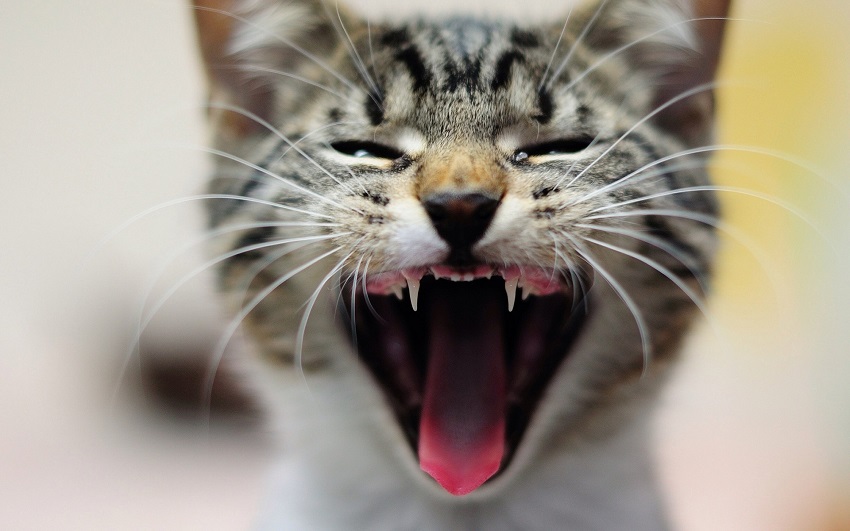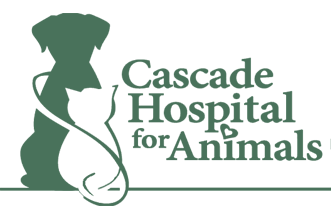
Could your cat’s mouth be painful like this?
It is often difficult and stressful to bring your cat into the clinic for an annual exam, but dental disease is one of the primary issues that we can find on those exams. It is a common misnomer that cats with a painful tooth or bad dental disease will stop eating. In fact, eating is an instinctual part of survival and that instinct overrides the pain and keeps them eating. Therefore, this is a not a good way to know if your cat’s mouth is painful.
Cats can have tartar and gingivitis just like people and dogs but they also have their own particular type of dental disease called resorptive lesions. These lesions start from inside the tooth and erode outward causing a hole in the tooth. This means that the inside of the tooth where the nerves and blood supply are located, is exposed to the bacteria within the mouth. This can lead to marked infection and having a nerve exposed definitely means that tooth is PAINFUL. The hole in the tooth creates weakness in the crown of the tooth which can lead to partial fractures which in turn, may cause a jagged piece to remain. This also causes discomfort.
Resorptive lesions are not caused by diet. It is not true that if your cat only eats dry food it will not get dental disease. They also have not been definitely linked to a particular environmental factor or virus. It seems that genetics plays the primary role here. This means that any cat can suffer from resorptive lesions, even yours.
Pain causes stress. Cats who are stressed can pull out their hair, urinate outside the litter box and develop other abnormal behaviors. Many cats with resorptive lesions will vomit undigested dry food more frequently. It hurts to chew, so they swallow the kibble whole which leads to a rapid expansion once inside the stomach and thus, can trigger vomiting of said food shortly after eating.
Please bring your cats into the veterinarian at least once a year to have their teeth checked. We all know how awful it can be to have a painful tooth.



